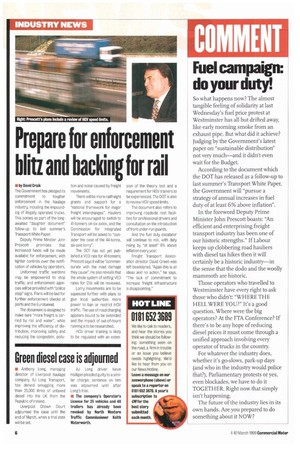Fuel campaign.
Page 8

If you've noticed an error in this article please click here to report it so we can fix it.
do your duty!
So what happens now? The almost tangible feeling of solidarity at last Wednesday's fuel price protest at Westminster has all but drifted away, like early morning smoke from an exhaust pipe. But what did it achieve? Judging by the Government's latest paper on "sustainable distribution" not very much—and it didn't even wait for the Budget.
According to the document which the DOT has released as a follow-up to last summer's Transport White Paper, the Government will "pursue a strategy of annual increases in fuel duty of at least 6% above inflation".
In the foreword Deputy Prime Minister John Prescott boasts: "An efficient and enterprising freight transport industry has been one of our historic strengths." If Labour keeps up clobbering road hauliers with diesel tax hikes then it will certainly be a historic industry—in the sense that the dodo and the woolly mammoth are historic.
Those operators who travelled to Westminster have every right to ask those who didn't: "WHERE THE HELL WERE YOU?" It's a good question. Where were the big operators? At the FTA Conference? If there's to be any hope of reducing diesel prices it must come through a unified approach involving every operator of trucks in the country.
For whatever the industry does, whether it's go-slows, park-up days (and who in the industry would police that?), Parliamentary protests or yes, even blockades, we have to do it TOGETHER. Right now that simply isn't happening.
The future of the industry lies in its own hands. Are you prepared to do something about it NOW?








































































































